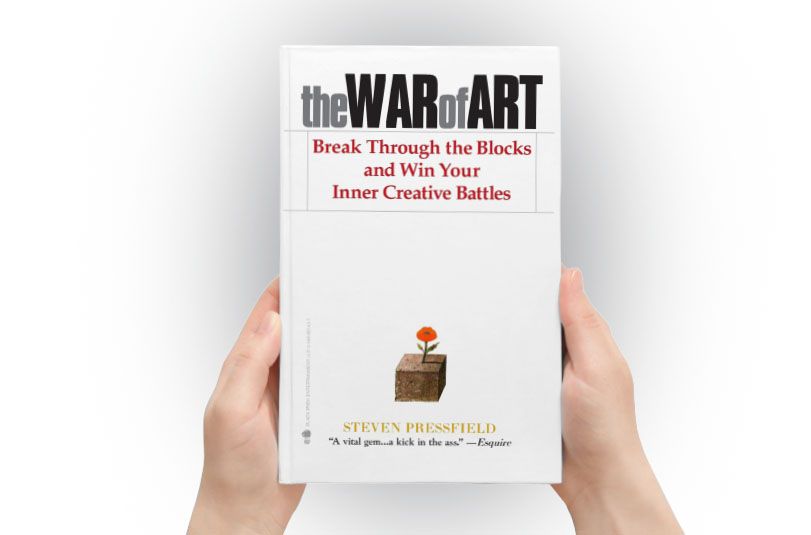How to Overcome Procrastination

Many of us are locked into the illusion that the opposite of procrastination is insane motivation and productivity. But this is not true.
We all know there’s only one way to beat procrastination: suck it up and get the hell on with it.
But like most of life’s challenges, being told just what to do is often as unhelpful as it is obvious.
The shock of diving into our work and the dissonance that arises between our imagined capabilities and reality is what we procrastinators fear most.
Are we as good as we think?
In the same way that we would rather bad news be broken to us gently, given the choice, we would also rather be gently awoken from our dreams of grandeur than hosed down with icy water.
Unfortunately, the only real way to be somebody who embodies traits that are opposite to procrastination is to just start.
The good news is, there are some very useful methods in existence that can greatly ease the pain of starting.
The Few Minutes Principle
British psychologist Professor Richard Wiseman, in his fantastic book 59 Seconds, explains the best, research-proven way for overcoming initial procrastination:
Procrastinators frequently put off starting certain activities because they are overwhelmed by the size of the job in front of them. However, if they can be persuaded or can persuade themselves, to work on the activity for “just a few minutes”, they often feel an urge to see it through to the completion.
It’s not exactly groundbreaking advice, but perhaps that’s why having the evidence to back it up is so important. This approach allows us to take more seriously what we’d otherwise consider as common sense.
I use "The Few Minutes principle" constantly. I don’t think it’s the complete solution for all types of procrastination, but it certainly gets you started, which, according to Wiseman, is all you need.
Note: If you get used to using the "Few Minutes technique" and begin associating it with more than a few minutes, it may lose its allure. For this reason, it’s important that you only work for a few minutes if that’s what you feel like doing.
Adopt the Attitude of Turning Pro

For creative challenges that require lots of effort or need to be completed on deadline, turning pro might be the attitudinal shift you ought to adopt.
Steven Pressfield, the author of Turning Pro and The War of Art, categorizes procrastination as just one of many creative obstacles under the umbrella term “Resistance.”
The shift in mindset "turning pro" endorses stems from the assumption that the amateur artist waits for inspiration while the professional, someone who creates for a living, outputs work from themselves regardless of the quality or how in the zone they feel.
Pressfield claims that a good work ethic is a much more important asset to any artist than a muse. Here is a quote from his book The War Of Art that encapsulates his philosophy in a nutshell:
The most important thing about art is to work. Nothing else matters except sitting down every day and trying.
In the real world, skimping on work for lack of inspiration would get you fired. Bewilderingly, many amateur artists think this is a valid excuse. It isn’t. If you want to be your own boss, you must manage your own inner-worker.
The quality of your work and the inspiration you feel on any given day is not always within your control, but letting that stop you from working is. The idea here is to stop being an amateur. Get up, go to work, and turn pro. This is one of the best mindsets to top procrastinating right now.
For regular reminders of the importance of turning pro plus a goldmine of additional productivity principles I highly recommend the "what it takes" section of Pressfield’s blog. Find it here.
Learn On The Job
I feel it’s also worth mentioning here, a further subcategory of resistance that I see many well-intentioned artists, including myself, get tripped upon: the belief that doing research equates to doing work. It doesn’t.
“The more you know, the more you know you don’t know.”
— Aristotle
We have limited time on earth, and we cannot possibly learn everything. There is a real need to be selective in deciding what to include in our research and what to omit.
Paradoxically, we cannot be sure what research our work could benefit from if no such work exists. The only solution then is to learn on the job.
Instead of trying to plan out your creative journey perfectly beforehand, a more efficient strategy would be to start and course-correct as you go. You will save time and be much more motivated to learn what is necessary when the limits of your knowledge are tested. For those who find themselves needing to read that one more book, watch that last film, and get that last piece of the puzzle before they begin, this last instruction is for you:
“Start before you’re ready.”
– Steven Pressfield
You cannot prepare your way to a masterpiece. Knowing what to include is always easier than knowing what to leave out and learning when to start (now) is always easier than learning when to stop (now?)…
For those of you who struggle with this decision, as I once did, you don’t have to stop yet. Check out Overcoming Perfectionism with Excellence where you’ll learn what Pablo Picasso, Stanley Kubrick, and Woody Allen can teach you about why people fall short of their potential and what to do about it.
Extra Resources for Overcoming Procrastination Right Now:
- 59 Seconds: Think a little, Change a Lot by Richard Wiseman
This is a fantastic book. Many existing self-help myths are exposed and replaced with scientifically backed up advice. There’s also a great chapter on motivation and procrastination (‘few minutes principle’).
- War of Art: Break Through the Blocks and Win Your Inner Creative Battles by Steven Pressfield
A highly successful author’s philosophies on how to overcome the obstacles in the way of creating great art. A must-read for any amateur artist (turn pro).
- On Writing: A Memoir of the Craft by Stephen King
Stephen King is the most successful American writer of all time. He also wrote the 304-page novel “The Running Man” in 10 days. He’s worth listening to.
- Stop Talking, Start Doing: A Kick in the Pants in Six Parts by Shaa Wasmund and Richard Newton
The book is small but packed full of wisdom. And the authors Shaa Wasmund and Richard Newton do an excellent job of reminding you of what you already know: there’s no better time to start than now.